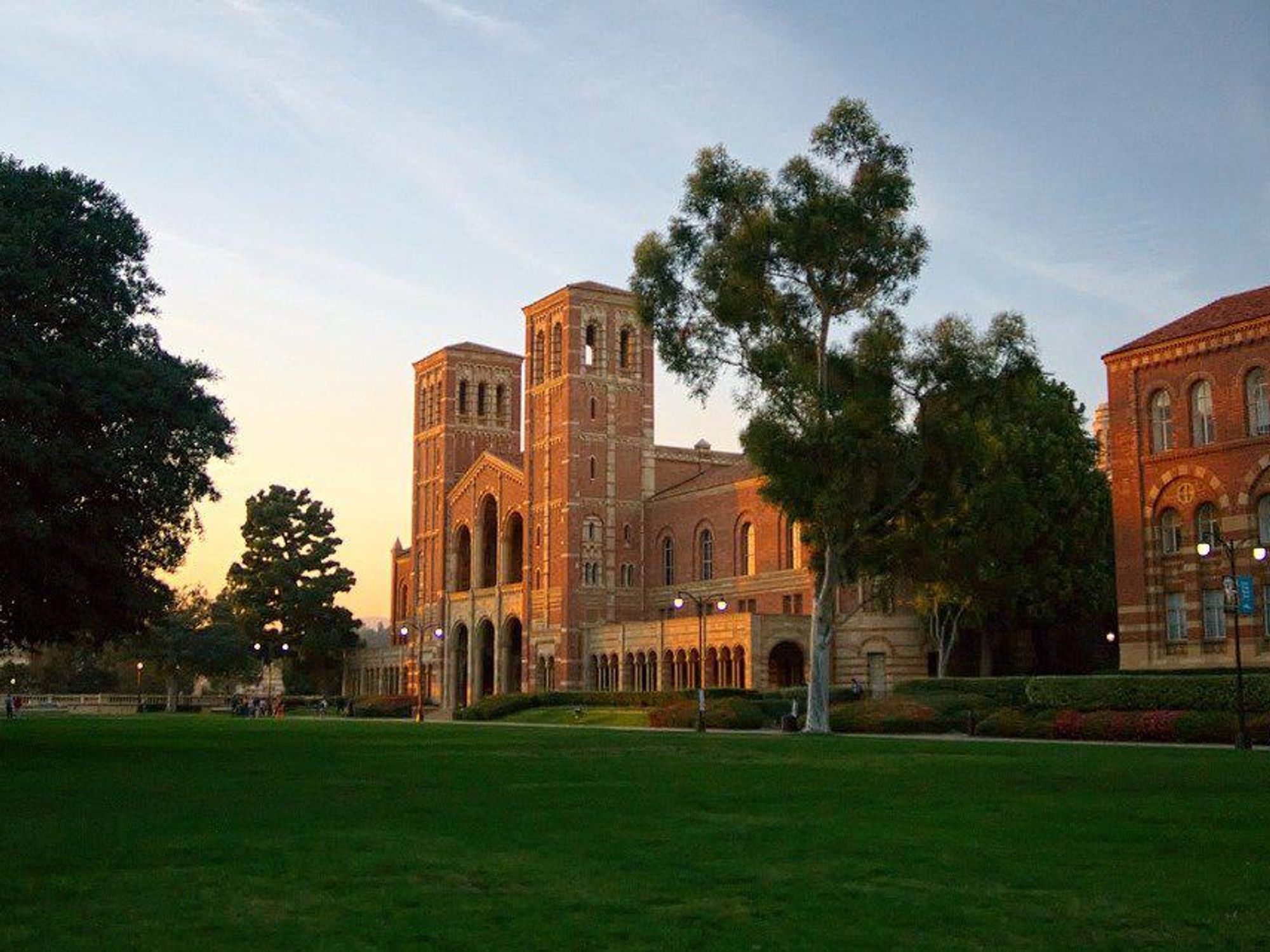New Study Finds That UCLA and Other Top Research Universities Have Done Little To Make New Drugs Accessible
Keerthi Vedantam is a bioscience reporter at dot.LA. She cut her teeth covering everything from cloud computing to 5G in San Francisco and Seattle. Before she covered tech, Keerthi reported on tribal lands and congressional policy in Washington, D.C. Connect with her on Twitter, Clubhouse (@keerthivedantam) or Signal at 408-470-0776.

Despite gobbling up taxpayer dollars, UCLA and other top U.S. research universities are not doing enough to make drugs and medical devices financially accessible to people in low-income countries, a new report found.
Universities Allied for Essential Medicines, a student-run nonprofit focused on making costly medicines cheaper worldwide, used public data and a survey to rank 60 universities on their dedication to improve health disparities in low-income countries.
UCLA and 16 other top public universities that develop drug treatments got a D-minus rating for centering much of their research around private companies and failing to prioritize global health. The report also found the university failed to fund many projects that would help treat neglected diseases most common in low-income countries.
Avani Reddy, a neuroscience student at UCLA and one a member of UAEM, said the group compiled the report to ensure that her school and other universities were developing drugs at "sustainable prices and not obnoxious prices."
Georgetown and Harvard ranked highest with a B- while other UC system schools, including San Francisco and Davis, also got Ds, while Irvine got a F.
UCLA declined to respond to questions about the study, but said the university did not participate. UAEM ranked universities that did not respond lower than those that did.
"It should be that that research is accessible to people," said Devika Shenoy, a UCLA student and UAEM member studying human biology and society.
The 20-year-old student organization was born out of an effort by Yale University students to make an HIV/AIDS drug developed at the school and distributed by Bristol-Myers Squibb cheaper for low-income countries by allowing for the production of generics.
UCLA received $840 million in federal dollars for the 2019-2020 fiscal year, much of which went towards the medical and life sciences schools.
UAEM wants major federally funded research universities to focus on the issues big pharma companies find less profitable, like when Johns Hopkins surrendered a tuberculosis drug to a United Nations-supported organization to distribute the drug royalty-free. These schools, UAEM argues, should serve a larger public good in part because the public is paying for the research.
"Universities hold influence to leverage their significant contribution in biomedical research to advance global access to essential medicines and health technologies," the UAEM report said, pointing to the fact that one-third of new medicines originate in universities, according to a 2010 report.
UCLA has come under fire for drug access before. In 2016, the school sold a drug it developed to treat prostate cancer to Royalty Pharma. When a generic drug company in India tried to reproduce it, the school filed a patent claim, sparking protests. Ultimately, UCLA prevailed. But the incident highlights the pressure public-funded research universities are under to make their discoveries available and the competing demand from a market that relies on them.
Low and middle-income countries "may not have access to those resources to invest in R&D the way that schools like UCLA can in order to ensure that global public health needs are really being prioritized," Shenoy said.
COVID has brought these issues to the forefront. Oxford University originally developed its COVID-19 vaccine with the promise it would be open source so it could be distributed in low-income countries at a low cost or for free. Instead, it became the AstraZenca vaccine after the Gates Foundation brokered a deal between the two parties.
Meanwhile, only 0.1% of COVID-19 vaccines have made it to low-income countries. In 2020, organizations like Amnesty International warned that many in low-income countries would not have access to patented vaccines owned by wealthier countries. Vaccines specifically made with cheaper and accessible materials have just begun clinical trials, and pharma giant Pfizer will start testing a freeze-dried vaccine that can withstand higher temperatures this month.
Universities play a sizable role in the pharmaceutical pipeline, especially in preclinical development, according to Bill Bolding, a senior analyst at Provident Healthcare Partners. Venture firms and pharma companies rarely start investing in bioscience companies until there is proof of concept, much of which is created in university labs.
"Usually what you're seeing in the preclinical level is you're seeing like some kind of chemical reaction or proof of some kind of technology, in vitro," Bolding said.
- Scientists Making Brain Computers Worry about Ethics, Safety - dot.LA ›
- UCLA Gets FDA Approval for New COVID-19 Test - dot.LA ›
Keerthi Vedantam is a bioscience reporter at dot.LA. She cut her teeth covering everything from cloud computing to 5G in San Francisco and Seattle. Before she covered tech, Keerthi reported on tribal lands and congressional policy in Washington, D.C. Connect with her on Twitter, Clubhouse (@keerthivedantam) or Signal at 408-470-0776.



 Image Source: Revel
Image Source: Revel
